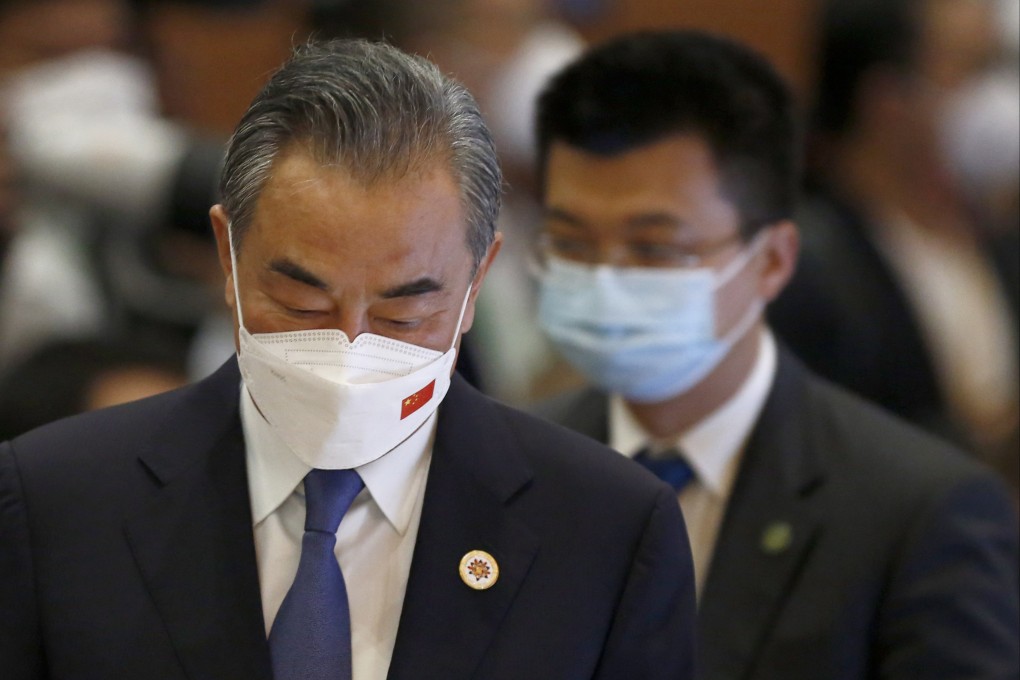Chinese Foreign Minister Wang Yi walks out of Asean events after US and Japan hit out at Taiwan drills
- Wang is reported to have walked out of events attended by US and Japanese diplomats as Beijing faced criticism over its response to Nancy Pelosi’s Taiwan visit
- China’s foreign ministry did not confirm the reports but hit out at Tokyo’s ‘bad behaviour’ over the issue

Citing anonymous sources present, Reuters reported that on Thursday Wang walked out of an evening gala for foreign ministers in Phnom Penh, where diplomats from the Association of Southeast Asian Nations, the United States, Japan, South Korea and Russia are meeting.
Wang and his Russian counterpart Sergey Lavrov then staged another walkout at a meeting in the Cambodian capital on Friday when it was the turn of Japanese Foreign Minister Yoshimasa Hayashi to speak, according to Kyodo, which cited diplomatic sources.
Beijing regards Taiwan as part of its territory, to be retaken by force if necessary, and considers any official endorsement of its government as legitimising its international standing.
When asked about Wang’s reported walkouts, Hua Chunying, a spokeswoman for China’s foreign ministry, said she was not aware of the situation but hit out at Japan’s behaviour.